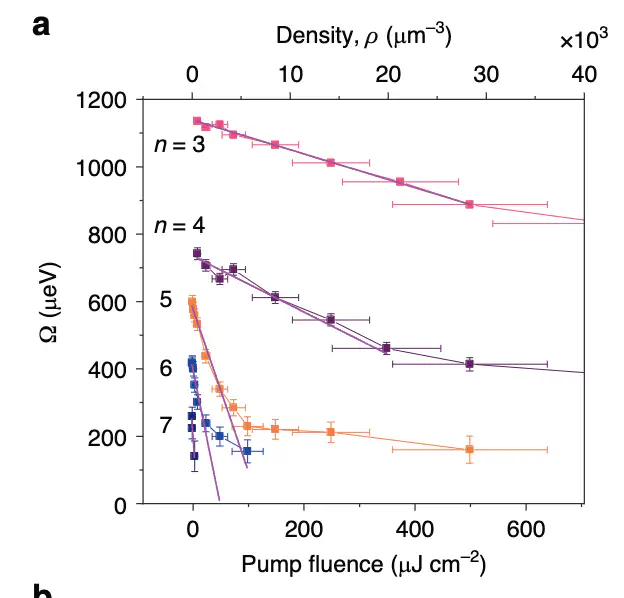
Abstract
Rydberg excitons (analogues of Rydberg atoms in condensed matter systems) are highly excited bound electron-hole states with large Bohr radii. The interaction between them as well as exciton coupling to light may lead to strong optical nonlinearity, with applications in sensing and quantum information processing. Here, we achieve strong effective photon–photon interactions (Kerr-like optical nonlinearity) via the Rydberg blockade phenomenon and the hybridisation of excitons and photons forming polaritons in a Cu2O-filled microresonator. Under pulsed resonant excitation polariton resonance frequencies are renormalised due to the reduction of the photon-exciton coupling with increasing exciton density. Theoretical analysis shows that the Rydberg blockade plays a major role in the experimentally observed scaling of the polariton nonlinearity coefficient as ∝ n^4.4±1.8 for principal quantum numbers up to n=7. Such high principal quantum numbers studied in a polariton system for the first time are essential for realisation of high Rydberg optical nonlinearities, which paves the way towards quantum optical applications and fundamental studies of strongly correlated photonic (polaritonic) states in a solid state system.